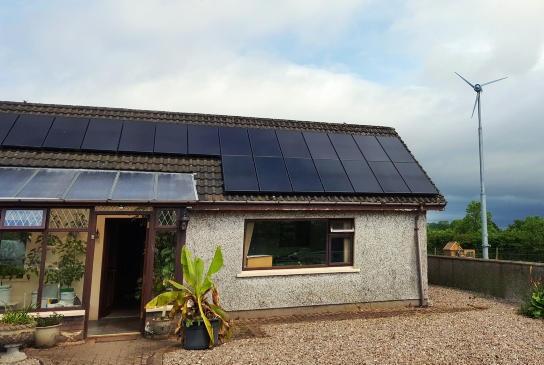A number of farmers, experts and renewable energy professionals have called on individual farmers to add their voices to the Department of Communications, Climate Action and Environment’s public consultation before it closes on Friday 3 November.
Speakers at this week’s Energy Now exhibition in Kilkenny said that despite the significant potential of small rooftop solar installations on farm buildings, homes and businesses – so-called microgeneration – Government proposals so far appeared to favour large-scale generation.
Microgeneration has been sidelined
“Proposed auctions systems would favour big players like Bord na Móna,” said Robert Goss, managing director of solar equipment supplier Solar Electric. “Microgeneration has been sidelined. Without some microgeneration support, citizens are excluded and might turn against solar,” he added. “The IFA will respond to the RESS consultation but individuals should also respond.”
The IFA has repeatedly called for proposed renewables support schemes to include farm-scale projects. Teagasc energy specialist Barry Caslin and Irish Solar Energy Association chief executive Michael McCarthy, too, encouraged farmers to make a submission.
Milking and refrigeration
The conference heard about many examples of farms where much of the solar energy produced through roof-mounted solar panels could be used inside the farm gate, including for milking and refrigeration, with only a limited level of support required to make the investment commercially viable.
Contributions to the public consultation will inform Government decisions on the type and level of subsidies available to producers of renewable electricity generated from solar, wind or biogas plants from next year. Previous subsidised electricity purchase schemes, known as REFiT, have been closed to new entrants since 2015 and did not support solar.
’Excluded from support’
According to the Department's consultation paper, “the economic analysis indicates that support for microgeneration may be excluded from support directly under the new RESS”, citing high costs and implementation difficulties. Instead, it is suggesting that RESS support should be auctioned to electricity producers offering the lowest unit production cost, which industry sources say are most likely to be large windfarms.
The consultation paper includes numerous calls for greater community involvement in renewable electricity projects, but suggests this should be done through incentives for local residents’ shareholding in large-scale plants. Any support for microgeneration would be pushed back until after a review and policy framework are in place.
Grant scheme proposal
Former IFA general secretary Pat Smith, now managing director of the renewable energy firm Local Power, called the consultation paper “a disgrace”. He suggested that one in every five euro paid to support renewable electricity through the Public Service Obligation on consumers' electricity bills be ring-fenced for a 30% grant scheme for microgeneration investments such as solar panels mounted on shed roofs.
Co Tipperary dairy farmer Thomas Cooke, who has been developing renewable energy projects on his own farm and in the region, said: “Rooftop seems to be a quick win: you have the structure, you have the demand underneath in most cases, but the Government seems to be working on a completely different, corporate level and choosing different winners.”
Wanted: opinions on new Renewable Electricity Support Scheme
Government missing ‘major opportunity’ on solar
Budget 2018: what do renewable energy measures mean for farmers?






 This is a subscriber-only article
This is a subscriber-only article










SHARING OPTIONS: